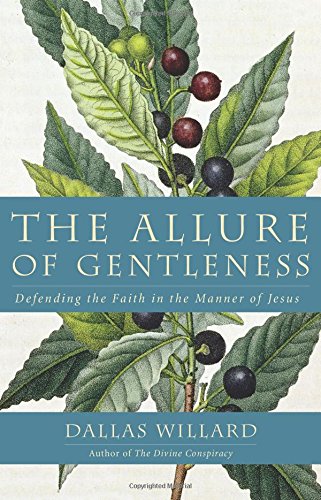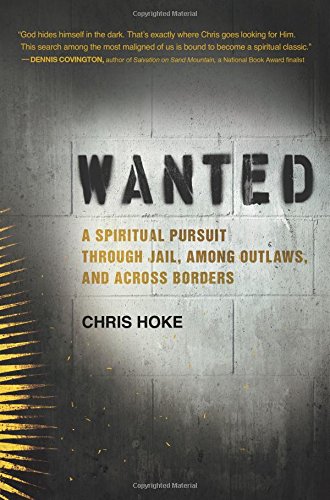John 14:12, Greater Works than Jesus?
“Most assuredly, I say to you, he who believes in Me, the works that I do he will do also; and greater works than these he will do, because I go to My Father.
//Those who follow after Jesus will do greater works than Jesus? Is that really what this verse means? Doesn’t that sound a bit sacrilegious, or at least a bit presumptuous? Let me quote a couple more verses:
A disciple is not above his teacher, but everyone who is perfectly trained will be like his teacher. –Luke 6:40
So apparently while we are not greater than Jesus, we are to be perfectly trained, so that we are like Jesus. But what does it mean to be like Jesus? Read the next verse carefully:
till we all come to the unity of the faith and of the knowledge of the Son of God, to a perfect man, to the measure of the stature of the fullness of Christ; –Ephesians 4:13
As perfectly trained disciples, our goal is to attain the stature of Christ in all his fullness.
Now, I don’t think this has anything to do with superseding the place Jesus held. Rather, it is about accomplishing the works Jesus did and taught. This way of Jesus is not about blindly believing, worshipping, and accepting grace. It’s about works, continuing the work Jesus did, to accomplish even greater things than he.

Book review: The Allure of Gentleness
by Dallas Willard
★★★★★
This is one of those books that I can only half-agree with, yet earns five stars for its approach and message. More conservative readers will appreciate the book most. Willard considers the work of apologetics as extremely important. “Being mistaken about life, the things of God, and the human soul is a deadly serious matter.” About such things he and I will disagree, yet I still enjoyed the book immensely.
It is, like other effective apologetics books, a “feel-good defense” rather than a rigorous argument. For example, Willard begins many discussions with the assumption of God’s omnipotence. He states that a creator creates for good, therefore the world is good. See the underlying assumption of omnipotence within the argument? But this deduction then lays the foundation for the question of all questions: Why is there evil? Willard spends ample time trying to explain that the suffering we experience is necessary, but the whole thing would become a pointless exercise if we could only divorce ourselves from the assumption of God’s omnipotence.
Willard discusses the role of reason, but recognizes the ineffectiveness of logical proofs. Christian apologetics, he insists, is not an attempt to prove we’re right. Defending the faith is about how you live. Amen, brother Willard! However, I think he errs in asserting that Christianity is the only religion based on love.
Nevertheless, Willard does provide a reasonable argument for the existence of an intelligent creator when he argues that order comes from minds. From there, he suggests that Christian faith makes sense. An important part of the book is devoted to the matter of communication between God and humanity, both on a large scale and as a quiet voice to the individual. Willard realizes its hard to believe in God if you don’t recognize his voice. “God speaks constantly to people, but most of them don’t know what’s happening.” To this end, I found his explanation of how God speaks both simple and eloquent: “The fundamental way God speaks to us is by causing thoughts in our mind that we come to learn have a characteristic quality, content, and spirit about them.”
For the believer trying to solidify their faith, or the unbeliever wondering what the heck is going on in the heads of believers, this is a great book. Gentle apologetics at its best!
Harper One, © 2015, 191 pages
ISBN:978-0-06-211408-2

Matthew 2:15, Called Out of Egypt
And [Jesus, Mary and Joseph were] there until the death of Herod: that it might be fulfilled which was spoken of the Lord by the prophet, saying, Out of Egypt have I called my son.
//Jesus was apparently from Nazareth, but prophecy foretold that Israel’s savior would be born in Bethlehem. So our two New Testament birth stories contrive a way to put Jesus’s birth there. In Luke’s version of the virgin birth, Joseph travels to Bethlehem for a census, and there the child is born, after which the family returns to Nazareth. But in Matthew’s version, Joseph appears to live initially in Bethlehem, and they are uprooted by the threat of King Herod’s infanticide. They flee to Egypt, live there a while, and then decide to relocate in Nazareth.
Why this detour to Egypt in Matthew’s honorific story? He is referencing Hosea 11:1:
When Israel was a child, then I loved him, and called my son out of Egypt.
Hosea dreams of the day Israel will be restored, and hundreds of years later Matthew sees Jesus as the savior who would restore Israel. As God led his “child” Israel out of Egypt in the great exodus, so Jesus becomes the next child of God.
By telling this story of Jesus being called out of Egypt, Matthew is honoring Jesus and pointing to him as the fulfillment of Hosea’s dreams. Did it really happen? That’s hardly important.

Matthew 22:10, The Bad and the Good
So those servants went out into the highways and gathered together all whom they found, both bad and good. And the wedding hall was filled with guests.
//One day, said Jesus in parable, a king prepared a wedding feast for his son and sent out his servants to call those who were invited. But the invited guests weren’t in the mood. They had better things to do, it seems.
So the king was angry. Rather than waste his time with these rich and pretentious busy people, he sent his servants into the streets to call commoners, both good people and bad people; everyone was extended an invitation, and the wedding hall was filled.
But when the king came in to the banquet, he found there a man who wasn’t wearing a wedding garment. It was customary for the host–especially a king–to provide outer garments at the door for the guests to wear. Why was this man refusing to wear his garment?
Who did he think he was, refusing to be classed with the rest of the guests? Did he think himself better than the commoners? Was he one of the “good” refusing to dress like the “bad”, lest he be thought no better than they?
The king was incensed, and threw him out into the darkness. Apparently, the Kingdom has no place for snooty people.

Mark 2:14, Who Followed Whom?
And as he passed by, he saw Levi the son of Alphaeus sitting at the receipt of custom, and said unto him, Follow me. And he arose and followed him.
//Levi, elsewhere called Matthew, held a contemptible office. He was a tax collector, sitting in the tax office. He was working for the Roman government, taking money from honest working men and giving it to the Empire. His own personal income came from whatever excess he decided to charge, and many in his profession grew rich because of their less than scrupulous ways.
That was how tax collectors were commonly perceived. They were the traitors, among the worst of sinners. Jesus happened upon this man in his hated profession and called him. “Follow me,” he invited. So where did they go?
And it came to pass, that, as Jesus sat at meat in his house, many publicans and sinners sat also together with Jesus and his disciples: for there were many, and they followed him.
To the house of Levi. To the house of sin. Levi didn’t follow Jesus; Jesus followed Levi home. And there, he invited many more tax collectors and sinners to follow him. There, he probably received more invitations to more traitors’ homes.
Jesus’s call to “follow him” isn’t into the beautiful homes of the beautiful people. It’s into the nest of the spiritually needy, those we may never think to call a friend … until we get to know them.

Book review: Wanted
by Chris Hoke
★★★★★
Dark and yet hope-filled, this book carries you along on the journey of a young pastor through gangs, prisons, and illegal immigrants. These are desperate people. But these are the people–like the huckster tax collector Matthew in the Bible–that Jesus made a point of befriending.
It’s an emotional and frightening journey. Chris at first felt uncomfortable with the title of Pastor, but that’s what his outcast acquaintances insisted on calling him. Pastor means “shepherd” … in this case, a shepherd to the black sheep. It’s where Chris seemed to belong:
“Growing up in many churches, I never found them to be raw or extremely honest places–not places where you could show the worst side of yourself. But I found the jail to be a place where inmates didn’t have the option to hide their problems. Hard as one may try with weak laughter or macho fronts before guards, you can’t pretend your life is working out just fine when you’re locked in the county jail. Here, people are left staring–innocent or guilty of the specific charges–at the wreck of their lives. And in this place, in these rooms of unadorned life, I found something that clergy call sacrament, mysteries I could feel. More than bible studies, the one-on-one visits with the men were the sites of holy encounters for me.”
The fellowship in prison grew, and Chris’s faith grew alongside it.
“I felt like I was falling deeper in love as all this happened. It wasn’t just with these broken lives at the table with me. It was love for the One through whose eyes I was possibly learning to see. I began to suspect I was sensing the desire of Another–God’s desire for the locked-up.”
Raw and real, this is a book you don’t want to miss if you’re serious about being a Christian. I hope to provide a few excerpts from the book in future posts.
Harper One, © 2015, 367 pages
ISBN: 978-0-06-232136-7

Book Excerpt: John’s Gospel: The Way It Happened
“‘Without wine there is no joy,’” Matthew quoted a rabbinic saying. He still stared over the wall. “Your tale speaks truly, if it is meant as a parable of today’s age. Remember what Isaiah prophesied? ‘The new wine dries up and the vine withers; all the merrymakers groan.’ And do you know why, John? You know why, Ruth?” When neither spoke, Matthew answered his own question. “‘The earth is defiled by its people; they have disobeyed the laws, violated the statutes and broken the everlasting covenant.’”
“But Matthew …” John lifted a hand, palm outward.
“‘The ruined city lies desolate; the entrance to every house is barred,’” Matthew’s voice fell to a sad whisper as he continued to quote the prophet Isaiah. “I have seen the prophecy of Isaiah fulfilled, John! I have been to Jerusalem and seen the desolation! There is no messiah coming!” A bug scurried along the rock wall, and Matthew squished it with his thumb, as efficiently as God squished his Holy City.
“You’re right about Jerusalem, Matthew, but—”
Turning around, Matthew rumbled over the weaker man’s voice, his peacekeeping objective already faltering. “‘In the streets they cry out for wine; all joy turns to gloom, all gaiety is banished from the earth. The city is left in ruins, its gate is battered to pieces.’”
“And so did Israel feel while yet Jesus walked the earth, Matthew! Even before the war! We have been pinned under Roman oppression for a hundred years! We have suffered under self-serving and irreverent priests even longer! Yes, the Great War was terrible, but our people felt the desperation of Israel for a long time before that.”
Matthew shut up, his point made. But John would not let the matter drop. “Do you remember what Isaiah promised immediately after that prophecy, Matthew?”
Matthew pursed his lips. Ruth could sense him holding back, trying to rein in his crankiness, so she spoke for him: “‘The Lord Almighty will prepare a feast of rich food for all peoples, a banquet of aged wine.’”
“Right,” John agreed, impressed by Ruth’s command of the Jewish scriptures. “And that’s the story I have to tell. Now, may I continue?”
–John’s Gospel: The Way It Happened, 2013, by Lee Harmon

Mark 12:41-44, The Widow’s Farthing
And Jesus sat over against the treasury, and beheld how the people cast money into the treasury: and many that were rich cast in much. And there came a certain poor widow, and she threw in two mites, which make a farthing. And he called unto him his disciples, and saith unto them, Verily I say unto you, That this poor widow hath cast more in, than all they which have cast into the treasury: For all they did cast in of their abundance; but she of her want did cast in all that she had, even all her living.
//If there’s one thing I’ve learned this year, it’s that there is not one right way to interpret the stories of Jesus. There is a richness of ideas and lessons contained in these simple stories and parables that I never imagined.
Take this story of the woman who put everything she owned into the temple treasury. Traditionally, I may have appreciated her willingness to give, even to the last penny. What a trust in God she had!
But what if Jesus wasn’t pointing out her faithfulness? What if Jesus was highlighting the blood-sucking ways of the Temple system, and pointing her out as a victim?
Then the parable says this: “Don’t be like this poor victim. The religious system will leave you empty and broke. This system may work for the rich, but for the poor, it only leaves them more destitute.”
Why would we think this is what Jesus was saying? Read the story in context! Jesus had just issued a warning about the scribes and how they “devour widows’ houses.” Then he points to this poor widow as an example.

Book Excerpt: The River of Life
In the Bible, the Spirit is associated with creation. In Genesis 1:2, the wind/spirit/breath-of-God blows across the deep. Thus the wind provides an excellent picture of the Spirit, roaming the earth. Breath is merely wind inside us. To be “born of the Spirit” means to be created anew, embracing the meaning of life intended by God. It is God breathing new life into a person. In both Hebrew and Greek, there is only one word for both “wind” and “spirit.” The tendency of the churches of today to conceptualize and personify this spirit costs it much of the meaning. It is wind all around and inside us, cosmic breath, the invisible, spectral life-force.
Try to picture the moment Jesus rose from his baptism in the Jordan waters and felt the Spirit descend upon him. Have you had such moments? For many, it’s a once-in-a-lifetime experience, impossible to forget. The moment arrives in transcendental form, and we feel bathed in a foreign substance.
In such moments, it’s common to be overwhelmed by an indescribable feeling of joy, peace, and love.
–The River of Life, Energion Publications, 2014 by Lee Harmon

Genesis 22:11-12, Did God Tell Abraham To Sacrifice Isaac? Part III of III
And the angel of the LORD called unto him out of heaven, and said, Abraham, Abraham: and he said, Here am I. And he said, Lay not thine hand upon the lad, neither do thou any thing unto him.
//Continued from yesterday: Suppose, in the story of Abraham sacrificing his son Isaac, that the two names for God–Yahweh and Elohim–refer to different beings, rather than to the same god. Suppose that Yahweh is the god who called Abraham out of Ur, while Elohim refers to the gods he once worshipped.
Yesterday’s post ended with Elohim calling to Abraham, enticing him to return to his polytheistic, blood-sacrificing ways. The gods he once worshipped invite him to Mount Moriah to sacrifice his son on an alter.
So Abraham goes. He binds his son, places him on the altar, and raises the sacrificial knife. Today’s verse is what happens next. (Hint: when your Bible reads “God,” the original Hebrew reads Elohim; when your Bible reads “the Lord,” the original Hebrew reads Yahweh.)
Did you catch it? It’s Yahweh back on stage now. Elohim calls for sacrifice, but Yahweh calls it off. Israel’s God has a different idea:
For I desired mercy, and not sacrifice; and the knowledge of God more than burnt offerings. –Hosea 6:6


















 354 Circles
354 Circles
 603 Goodreads Friends & Fans
603 Goodreads Friends & Fans

 Hello! I'm an author, historical Jesus scholar, book reviewer, and liberal Christian, which means I appreciate and attempt to exercise the humanitarian teachings of Jesus without getting hung up on any particular supernatural or religious beliefs.
The Bible is a magnificent book that has inspired and spiritually fed generations for thousands of years, and each new century seems to bring a deeper understanding of life’s purpose. This is true of not only Christianity; through the years, our age-old religions are slowly transforming from superstitious rituals into humanitarian philosophies. In short, we are growing up, and I am thrilled to be riding the wave.
I avidly read all thought-provoking religion titles. New authors: I'd love to read and review your book!
Hello! I'm an author, historical Jesus scholar, book reviewer, and liberal Christian, which means I appreciate and attempt to exercise the humanitarian teachings of Jesus without getting hung up on any particular supernatural or religious beliefs.
The Bible is a magnificent book that has inspired and spiritually fed generations for thousands of years, and each new century seems to bring a deeper understanding of life’s purpose. This is true of not only Christianity; through the years, our age-old religions are slowly transforming from superstitious rituals into humanitarian philosophies. In short, we are growing up, and I am thrilled to be riding the wave.
I avidly read all thought-provoking religion titles. New authors: I'd love to read and review your book!
 Hi! While Lee writes the articles and reviews the books, I edit, organize, and maintain the blog. The views expressed here are Lee's but I'm his biggest supporter! :-)
Hi! While Lee writes the articles and reviews the books, I edit, organize, and maintain the blog. The views expressed here are Lee's but I'm his biggest supporter! :-)
Connect With Me!